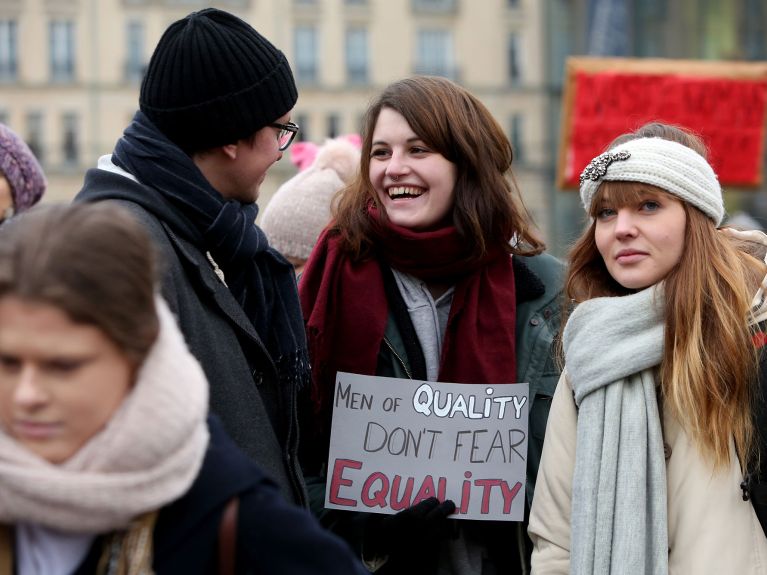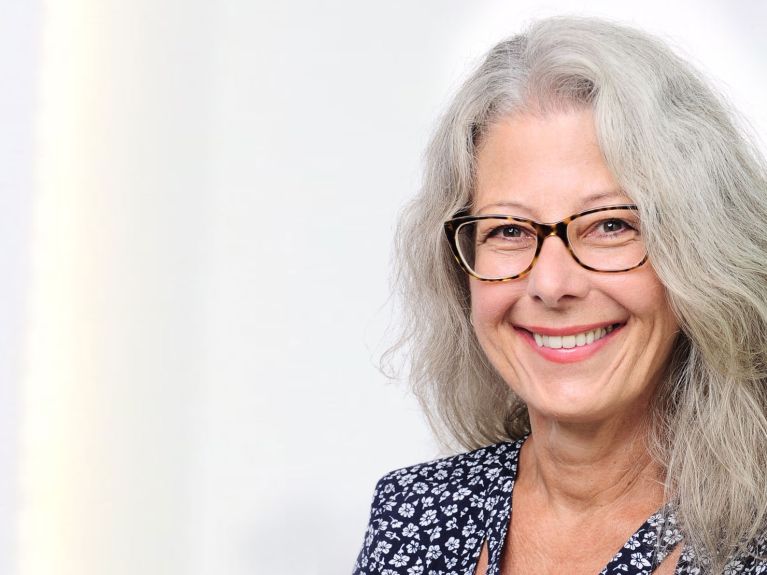‘Feminism lives on’
Gender equality in Germany and why the new feminism is by no means hostile to men.

Younger people have a need for real equality in everyday life. Sociologist Marianne Schmidbaur explains how this is changing attitudes towards feminism. She is scientific director of the Centre for Gender Studies at the Goethe University Frankfurt.

Ms Schmidbaur, what is the situation as regards political equality in Germany? There is a female German Chancellor, but at the same time fewer women in the Bundestag.
Indeed, just over 30 percent of parliamentarians in the Bundestag today are women, fewer than in the last legislative period when it was over 36 percent. A few years ago we also had three Länder minister presidents, now there are two. You can’t simply assume that progress is inevitable.
Where does Germany rank by international comparison?
The International Parliamentary Union lists the percentage of women in parliaments worldwide. Germany is in the middle section of the table, in 46th position out of 190. Rwanda is in first place. Of course, this is only one indicator among many, but overall, in my opinion, a medium position is about accurate.
What would need to happen for Germany to move forward?
The political parties are something like the gatekeepers for representation in the parliaments. We therefore need a quota for lists of candidates. Evidently nothing will happen without one. In France, men and women must be equally represented on electoral lists. If this is not the case, either the list will not be accepted, or the party must fear having its grant reduced. We should follow this example.
Not only in Germany are parties representing traditional role models growing stronger. We need to nip these beginnings in the bud.
Does the word feminism have a negative connotation in Germany?
For a long time, feminism was equated with hostility towards men. It was therefore regarded as outdated. This has changed in the meantime. Today, young people are discovering that they can’t fulfil their life models, that they can’t achieve a fair and equal division of labour between the sexes in family and career. Yet that is exactly what the majority want. Feminism now has a different sound as a result.
So there’s a more pragmatic view of feminism?
To some extent, yes. It’s about equality in everyday life. Men, too, today no longer want to be limited to being the breadwinner.
Is the new feminism continuing the tradition of the early women’s movement?
Research speaks of three waves of feminism. The first fought for women’s right to vote and was organized in societies and groups. The second in the 1960s and 1970s fought for new freedoms and equal rights before the law; it consisted mainly of extra-parliamentary groups. Today, it is about living conditions, including the fight against sexual violence. The campaigns play out mainly on the internet and are more international than in the past.
In other words, feminism lives on – also in Germany?
Definitely. However, we must remain alert and active, otherwise there is a danger of setbacks. Not only in Germany are parties representing very traditional role models getting stronger. We need to nip these beginnings in the bud.
Interviewer: Friederike Bauer
© www.deutschland.de
